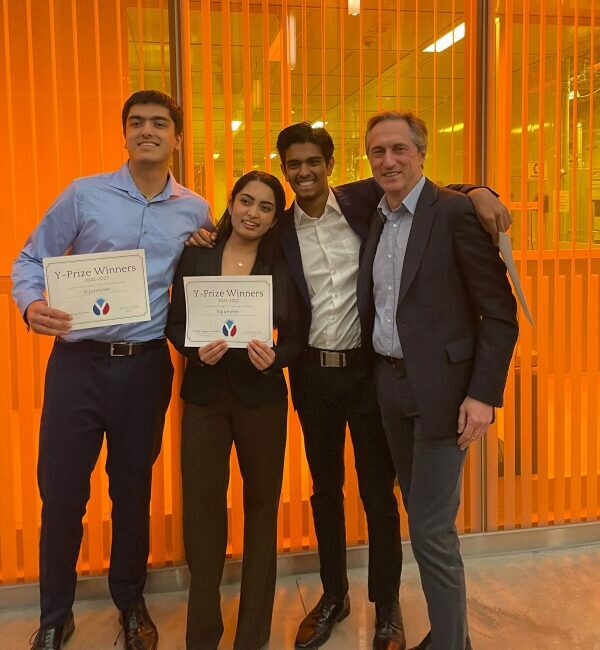
Congratulations to Equimeter, winners of this year’s $10,000 Y-Prize! The team of undergrads proposed a commercial application for Penn’s physics-informed neural network that improves pulse oximetry in patients with darker skin.
A pulse oximeter is a small device that clips to your finger and measures blood oxygen level. They became familiar to us during the COVID-19 pandemic and are ubiquitous in hospitals and other clinical settings. However, studies have shown that these devices don’t work as well in patients with darker skin. This causes clinicians to waste time and resources on multiple tests and, disturbingly, leads to racial disparities in treatment and outcomes.
Pulse oximeters work via an equation that relates the light intensity that passes through the patient’s finger to their blood oxygen level. However, patients with darker skin experience lower average levels of light intensity traveling through the finger. Currently, the equations in pulse oximeter machines do not account for this difference.
Equimeter solves this problem by using the PINN model to adjust for this difference and allow for patients of diverse skin colors to be graded by an algorithm specially adjusted to their skin color.
Team Equimeter is Ujjayi Pamidigantam (Vagelos LSM), Parthiv Patel (Vagelos LSM), Advait Thaploo (Vagelos LSM). They were declared the competition winner at the Y-Prize’s Grand Finale, after presenting their business plan and fielding questions from a panel of expert judges from academia and industry. Watch their short pitch video here.
The other 2022 finalists were AtrioFlow (who proposed a 3D heart-mapping technology), Bubble (who proposed using solar powered drones to predict weather patterns) and VoluVision (who proposed a full color volumetric display for medical visualization).
For over ten years, the Y-Prize competition has challenged students to build their entrepreneurial skills. Students team up to create business plans using technology invented at Penn Engineering. The team with the best commercial application wins $10,000 to help make their idea a reality. It is cosponsored by the Mack Institute, Penn Engineering, Venture Lab, and the Penn Center for Innovation.



